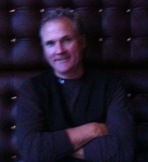 The other day, an interviewer asked me which of the 59 chapters of my book, Life Lessons of a Harvard Reject (not yet published), was my favorite. Here was my response:
The other day, an interviewer asked me which of the 59 chapters of my book, Life Lessons of a Harvard Reject (not yet published), was my favorite. Here was my response:
They’re all my babies. I roll them out in alphabetical order, because you want readers to find the information fast. One might want to read about leadership qualities, another about success, and another about innovation and inspiration. The last chapter is called “Wonder.” I think all 6,275 words, are the perfect and appropriate capstone for the book. Each time I read “Wonder,” it fires me up and renews my faith in this mysterious wonderful universe of ours.
What wonders never cease for me? Here are a few:
I marvel every time I’m in Pasadena and look up at Mt. Wilson, which is where Edwin Hubble in 1929 discovered that the universe is expanding.
I marvel at the rarity of our solar system, too, in the sense that about two-thirds of the universe’s solar systems are binary (with two suns). Many scientists say we would have had two as well, if only Jupiter had been about 100 times larger than it is (not that Jupiter is a runt, given it would take 1.3 million planets the size of the Earth to fill it up).
I marvel at the fact that a day on the planet Mercury is longer than its year.
I marvel at the living surface of our own earth. The discovery of plate tectonics, one of the great revelations of the 20th Century, has shown that the continents’ crust on which we walk – far from being immovable and permanent – is more like scum floating in a bowl of hot soup or the foam in a glass of beer. We Californians, who have experienced an earthquake or two, especially know this.
I marvel at the fact that Mt. Everest was once under the sea.
I marvel at the evidence suggesting that the Atlantic Ocean has closed and opened three times.
I marvel that just 1/400th of 1 percent of all the water on the planet is fit for human consumption. Every drop of life is precious.
But man remains the greatest puzzle and cause for wonderment!
In our own Civil War, about 620,000 people died in about 1,500 days, an appalling harvest of death equivalent to about 6 million dead in terms of today’s U.S. population. Yet, you also have someone like Lorenzo Medici (1449-1492), the patron of Michelangelo and Da Vinci, who spent half his state budget on books, earning the sobriquet Lorenzo the Magnificent. Who would be the 21st Century equivalent of Lorenzo today? Today, we close libraries!
I marvel at the productivity of Johannes Bach (1685-1750). He produced more than 1,100 musical compositions. After his death, many of these written masterpieces were used as fish wrap, and, thus lost forever to future generations. He was also prolific in the bedroom, producing 20 offspring.
I marvel at golfer Bobby Jones who won 13 majors from 1923 to 1930, and then suddenly retired as an amateur at 28 to practice law. Explaining his decision to retire, Jones said, “It (championship golf) is something like a cage. First you are expected to get into it and then you are expected to stay there. But of course, nobody can stay there.” Can you imagine that happening today? Jones is most famous for his unique “Grand Slam,” consisting of victories in all four major tournaments of his era (the open and amateur championships in both the United States and Britain in 1930).
I marvel at a universe where Beethoven wrote his Ninth Symphony while completely deaf and where Mikhail Gorbachev, the man who headed the Soviet Union, the “evil empire” supposedly bent on destroying us, filmed a Pizza Hut commercial.
You see, in this wonderful world of ours, things are never quite what they seem. You can never be certain what to expect. At the Constitutional Convention in 1787 in Philadelphia, Benjamin Franklin, who had never been a churchgoer and had always kept his religious beliefs to himself, surprised his colleagues when he called for a prayer, hoping God might grace the delegates with His wisdom and help them reach an historic compromise. “And if a sparrow cannot fall to the ground without His notice,” the humanist Franklin said, “is it probable that an empire can rise without His aid?”
But Franklin’s hopes and prayers for his fellow man didn’t stop at our shores. His wonderment and perspective extended much, much farther. The man who helped illuminate man’s understanding of the universe with his discoveries about electricity — the man who helped slay “thunderbolts and tyrants,” who had a deft hand in editing our Declaration of Independence — was always seeking knowledge in the darkness just beyond the flame. In one of his last letters, looking back on a life well lived, he wrote, “God grant that not only the love of liberty but a thorough knowledge of the rights of man may pervade all the nations of the earth so that a philosopher may set his foot anywhere on its surface and say, ‘This is my country.'”
Dare to make the world your country. Dare to make the universe your home! Dare to wonder about your great role in it all.



Leave a Reply